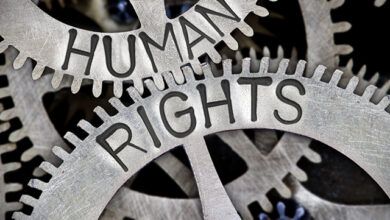Childhood obesity and nutrition awareness

Childhood obesity has become a major health concern worldwide, affecting millions of children and adolescents. According to the World Health Organization (WHO), the number of overweight and obese children has increased tenfold over the past four decades. Obesity in children not only leads to physical health problems but also affects their mental and emotional well-being. This article will explore the causes and consequences of childhood obesity, the importance of nutrition awareness, and practical ways to prevent and treat childhood obesity.
1. Introduction
Childhood obesity is a complex issue that requires urgent attention from parents, caregivers, healthcare providers, schools, and communities. In this article, we will examine the causes and consequences of childhood obesity, the importance of nutrition awareness, and practical ways to prevent and treat childhood obesity.
2. What is Childhood Obesity?
Childhood obesity is a condition where a child or adolescent is significantly overweight, with a body mass index (BMI) equal to or greater than the 95th percentile for their age and sex. Obesity is a serious health concern because it increases the risk of chronic diseases such as diabetes, heart disease, and cancer later in life.
3. Causes of Childhood Obesity
There is no single cause of childhood obesity. It is the result of a complex interaction between genetic, environmental, and behavioral factors. Some of the common causes of childhood obesity include:
- Genetics and family history
- Unhealthy eating habits, such as consuming high-calorie, high-fat, and sugary foods and drinks
- Lack of physical activity
- Sedentary behavior, such as watching TV, playing video games, and using computers
- Sleep deprivation
- Stress
- Environmental factors, such as easy access to unhealthy foods and lack of safe places to play and exercise
4. Consequences of Childhood Obesity
Childhood obesity can have serious physical, psychological, and social consequences. Some of the common consequences of childhood obesity include:
- Type 2 diabetes
- High blood pressure
- High cholesterol
- Asthma
- Joint problems
- Sleep apnea
- Depression and anxiety
- Low self-esteem
- Social isolation and bullying
5. The Importance of Nutrition Awareness
Nutrition awareness plays a critical role in preventing and treating childhood obesity. By educating children and their families about healthy eating habits and the importance of balanced diets, they can make informed choices about their food and beverage intake. Proper nutrition also ensures that children receive the necessary vitamins and minerals to support their growth and development.
6. Practical Ways to Prevent Childhood Obesity
Preventing childhood obesity requires a comprehensive approach that involves parents, caregivers, healthcare providers, schools, and communities. Here are some practical ways to prevent childhood obesity:
- Encourage healthy eating habits, such as consuming fruits, vegetables, whole grains, and lean proteins
- Limit the consumption of high-calorie, high-fat, and sugary foods and drinks
- Encourage regular physical activity, such as walking, running, biking, and swimming
- Limit sedentary behavior, such as watching TV, playing video games, and using computers
- Ensure that children get enough sleep each night
- Create a supportive home environment that promotes healthy behaviors
- Encourage children to participate in organized sports and other physical activities
- Provide healthy snacks and meals at home
- Limit fast food and takeout meals
- Encourage children to drink water instead of sugary drinks
7. Practical Ways to Treat Childhood Obesity
If your child is already overweight or obese, there are practical ways to help them lose weight and improve their health. Here are some effective strategies for treating childhood obesity:
- Create a personalized weight loss plan with your child’s healthcare provider
- Encourage your child to eat a balanced and nutritious diet
- Limit the intake of high-calorie, high-fat, and sugary foods and drinks
- Encourage regular physical activity and limit sedentary behavior
- Monitor your child’s weight and progress regularly
- Seek support from a registered dietitian, physical therapist, or mental health professional if needed
8. The Role of Parents and Caregivers in Preventing Childhood Obesity
Parents and caregivers play a critical role in preventing childhood obesity. By modeling healthy behaviors and creating a supportive environment, they can help their children develop lifelong healthy habits. Here are some ways parents and caregivers can help prevent childhood obesity:
- Set a positive example by eating a healthy and balanced diet
- Encourage regular physical activity and limit sedentary behavior
- Provide healthy snacks and meals at home
- Limit fast food and takeout meals
- Create a supportive environment that promotes healthy behaviors
- Encourage open communication with your child about their weight and health
9. The Role of Schools in Preventing Childhood Obesity
Schools can also play an important role in preventing childhood obesity. By promoting healthy eating habits and providing opportunities for physical activity, they can help students develop healthy habits. Here are some ways schools can help prevent childhood obesity:
- Provide healthy and nutritious meals and snacks in the school cafeteria
- Promote physical activity during the school day
- Offer physical education classes and opportunities for organized sports
- Limit the availability of sugary drinks and snacks in vending machines and school stores
- Provide education on healthy eating habits and the importance of regular physical activity
10. The Role of Communities in Preventing Childhood Obesity
Communities can also make a significant impact on preventing childhood obesity. By providing safe places to play and exercise, promoting healthy eating habits, and supporting local initiatives, communities can help families make healthy choices. Here are some ways communities can help prevent childhood obesity:
- Provide safe and accessible parks, playgrounds, and recreational areas
- Encourage community gardens and farmers’ markets to promote access to fresh fruits and vegetables
- Support local initiatives to promote healthy eating and physical activity
- Partner with local schools and healthcare providers to promote healthy behaviors
11. The Role of Healthcare Providers in Preventing Childhood Obesity
Healthcare providers play a crucial role in preventing childhood obesity. By identifying children who are at risk for obesity, providing education on healthy behaviors, and monitoring their weight and progress, they can help prevent and treat childhood obesity. Here are some ways healthcare providers can help prevent childhood obesity:
- Screen children for obesity and related health conditions
- Provide education on healthy eating habits and the importance of regular physical activity
- Create personalized weight loss plans with families
- Monitor weight and progress regularly
- Refer families to additional resources and support as needed
12. Conclusion
Childhood obesity is a significant public health concern that requires urgent action from parents, caregivers, healthcare providers, schools, and communities. By promoting healthy eating habits, regular physical activity, and a supportive environment, we can prevent and treat childhood obesity and improve the health and well-being of our children. Remember, small changes can have a big impact on the health of our children, and it’s never too late to make a difference.



